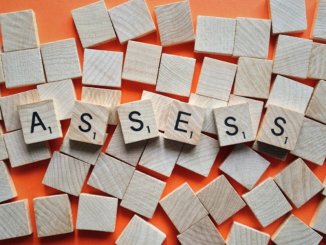
Personal loans are typically an unsecured form of credit that fill the gap between secured loans and credit cards. With a secured loan, you pledge an asset as collateral on the loan. For example, when you borrow money to buy a new car, you will typically pledge the car as collateral on a secured loan. Credit cards provide unsecured loans with variable balances (you can continue charging up to the card’s limit).
Like credit cards, personal loans are unsecured. Unlike credit cards, they are typically for a set amount. This makes them an attractive option for specific larger purchases.
Depending on your credit and ability to repay, there are a multitude of lenders willing to provide a personal loan. Yet personal loans are a serious commitment and should not be taken lightly. Here are three potential pitfalls to avoid if you’re in the market for a personal loan.
Skipping the Fine Print
While the interest rate is an important feature of the loan (possibly the most important feature), it is not the only feature. Read the fine print and watch out for fees and prepayment penalties. When you sign a personal loan agreement, you are making a pledge to repay the money (with interest) according to the terms of the agreement. You will be bound to those terms, so make sure you understand them.
Not Shopping Around
The fine print contains the specific terms of your loan agreement, so if you see something in the fine print that you don’t like, shop for another loan! Personal loans shouldn’t be impulse commitments, and you should never just take the first loan you find in a random online search (at least not without reading the fine print). You are promising to make monthly payments and are obligating yourself to make those payments regardless of your circumstances. Make sure you get a loan with a decent rate and terms you can afford.
The Siren Song of Easy Credit
If you can’t find a loan with terms that you can afford, resist the temptation to take out a loan with terms you can’t afford. Remember that you’re making a legally binding commitment to repay this loan according to the agreed terms of the loan. This is not something to be taken lightly. In other words, just because you can get a particular loan, doesn’t necessarily mean that you should take a particular loan. You don’t want to lock yourself into a loan that you can’t repay.
Don’t be afraid to pass on loans altogether if you don’t really need one. Taking on unnecessary debt is one of the most common mistakes people make, and it’s a good way to get in over your head. Think about why you need a loan before you start searching for one. Then think about it again before you sign.
If you are taking out a loan for something you don’t truly need, or if the terms are not something you can live with (or both!), you may find that you’re better off waiting. Lenders offer their most generous terms (i.e., lowest interest rates) to borrowers with good credit, so if you can’t find a good loan now, work on your credit by paying down any debt you currently have. If you can pay off existing debt, your credit rating will improve, and you can shop for a new personal loan again. You will likely find much better terms.



